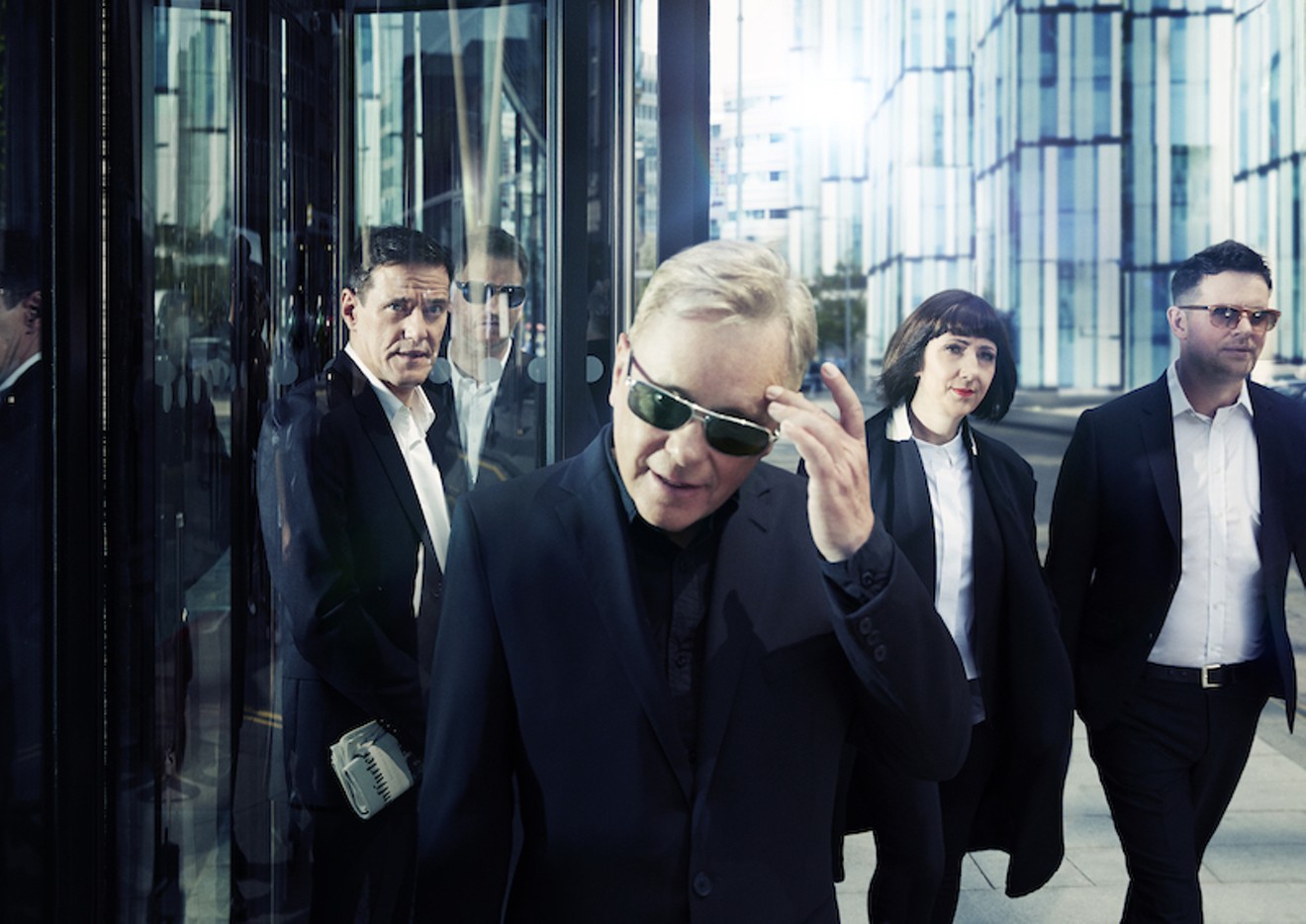Shortly after Joy Division suffered the loss of lead singer Ian Curtis to suicide in 1980, New Order formed from the ashes, fusing New Wave aesthetics with the textured synth sounds of underground dance music, and went on to huge success. Despite a couple of breakups over the decades and the eventual departure of founding bassist Peter Hook, New Order continues to tour globally with three of its original members. Ahead of their sold-out show at the Fillmore Miami Beach, New Times looks at how the bandmates' sweeping sound helped shape the future of indie rock and dance music.
They made dance music for rock fans. Innovative in its own right, New Order showed influences that were always traceable. A fateful Sex Pistols performance inspired the original Joy Division lineup, and New Order pays homage to the German electronic godfathers of Kraftwerk via a track called "Krafty" on 2005's Waiting for the Sirens' Call. By layering the reverberating austerity of postpunk and the futuristic, electro-disco rhythms of the New York underground, New Order paved the way for everyone from Derrick May and Detroit techno to electronic staples Moby and the Chemical Brothers to indie darlings Wild Nothing and the Drums.
They balked at albums and released perfect standalone singles. After a brief hiatus, New Order released its biggest hit, “Blue Monday,” as a single in 1983 in tandem with the brilliant Power, Corruption & Lies. Taken from a phrase spray-painted by German artist Gerhard Richter during an exhibition, that album name nods to the group's attitude toward the record business. Rather than pander to industry demands to put out albums overstuffed with unremarkable filler tracks, New Order deliberately let its dance-floor masterpiece shine alone. Absent from the full-length album, the iconic "Blue Monday" was an artistic statement that became the best-selling 12-inch release of all time, proving others could do the same.
They collaborated with then-unknown electro producer Arthur Baker. Before working with everyone from Diana Ross to David Bowie, influential New York producer Arthur Baker collaborated with New Order to create "Confusion," an instant-classic club banger that even nudged its way onto U.S. dance and R&B charts. Best known for his work with early hip-hop artists such as Afrika Bambaataa and Planet Patrol, Baker would compose, produce, and remix a number of tracks for New Order well into the aughts.

Cover artwork for New Order's single "Blue Monday" (left) and the LP Power, Corruption & Lies.
Factory Records
New Order. 8:30 p.m. Saturday, January 12, at the Fillmore Miami Beach, 1700 Washington Ave, Miami Beach; 305-673-7300; fillmoremb.com. Tickets are sold out.












